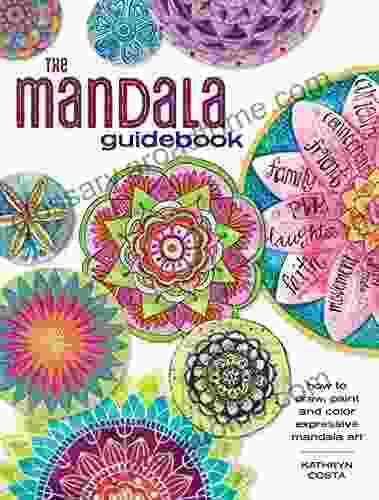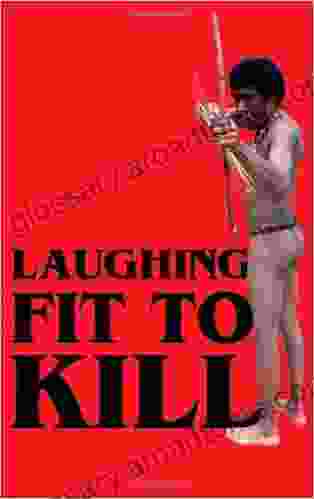Drugs Addiction And The Brain: Exploring the Neurobiology Behind Substance Use Disorders

Drug addiction, a prevalent global health concern, has profound implications for individuals, families, and communities. The World Health Organization estimates that over 350 million people worldwide struggle with substance use disFree Downloads, highlighting the urgent need for a comprehensive understanding of the neurobiological mechanisms underlying addiction.
4.9 out of 5
| Language | : | English |
| File size | : | 25095 KB |
| Text-to-Speech | : | Enabled |
| Screen Reader | : | Supported |
| Enhanced typesetting | : | Enabled |
| Print length | : | 710 pages |
This article will delve into the fascinating and complex relationship between drugs, addiction, and the brain, shedding light on the scientific basis for substance use disFree Downloads. We will explore the neurobiological processes that initiate and perpetuate addiction, the impact of drugs on brain chemistry, and the potential for addiction treatment to rewire the brain and promote recovery.
The Neurobiology of Drug Addiction
At the core of addiction lies a fundamental alteration in brain function. Drugs of abuse, such as opioids, stimulants, and alcohol, exert their effects by interfering with specific neurochemical pathways in the brain, particularly the reward system.
The reward system, primarily mediated by the neurotransmitter dopamine, plays a crucial role in motivation and pleasure. When we engage in rewarding activities, such as eating a delicious meal or spending time with loved ones, the brain releases dopamine, creating a sense of satisfaction and reinforcement. Drugs of abuse hijack this system by triggering an excessive release of dopamine, leading to an intense and immediate rush of pleasure.

Over time, repeated drug use can disrupt the delicate balance of the reward system, making it less responsive to natural rewards and leading to a decreased ability to experience pleasure from non-drug-related activities. This neurobiological adaptation is a hallmark of addiction and can perpetuate a cycle of drug seeking and use.
The Role of Brain Regions in Addiction
In addition to the reward system, other brain regions play a significant role in addiction, including:
- Prefrontal cortex: Responsible for decision-making, impulse control, and working memory, areas often impaired in addiction.
- Amygdala: Involved in emotional processing and stress response, which can contribute to drug-seeking behavior.
- Hippocampus: Essential for memory formation and retrieval, often affected in addiction, leading to difficulties in learning from negative experiences.
The complex interplay between these brain regions contributes to the multifaceted nature of addiction, making it a challenging disFree Download to overcome.
Withdrawal Symptoms and the Brain
When an individual stops using a drug after prolonged use, they may experience a range of withdrawal symptoms, both physical and psychological. These symptoms, which can vary depending on the substance, reflect the brain's response to the absence of the drug and the readjustment of neurochemical pathways.
Physical withdrawal symptoms can include tremors, nausea, sweating, and seizures, while psychological symptoms often involve anxiety, depression, insomnia, and cravings. The severity of withdrawal symptoms can influence an individual's likelihood of relapse, highlighting the importance of medically supervised detoxification and support during this critical phase.
Addiction Treatment and the Brain
Addiction treatment aims to address both the behavioral and neurobiological aspects of the disFree Download. Effective treatments can help individuals regain control over their substance use, restore brain function, and promote long-term recovery.
Treatment approaches vary depending on the individual's needs and may include:
- Cognitive-behavioral therapy: Helps individuals understand the thought patterns and behaviors that contribute to their addiction.
- Contingency management: Uses rewards and incentives to encourage abstinence and positive behaviors.
- Medications: Can help reduce cravings, manage withdrawal symptoms, and restore neurochemical balance.
Research has shown that successful addiction treatment can lead to significant changes in brain function. Treatment can help restore the balance in the reward system, improve cognitive function, and reduce the activity of brain regions associated with craving and relapse.
Drugs Addiction And The Brain provides a comprehensive overview of the neurobiological mechanisms underlying substance use disFree Downloads. By understanding the complex interplay between drugs, the brain, and behavior, we can develop more effective treatments, support individuals in recovery, and work towards reducing the impact of addiction on our society.
If you or someone you know is struggling with addiction, please seek professional help. Recovery is possible, and with the right support, individuals can reclaim their lives from the grip of substance use disFree Downloads.
4.9 out of 5
| Language | : | English |
| File size | : | 25095 KB |
| Text-to-Speech | : | Enabled |
| Screen Reader | : | Supported |
| Enhanced typesetting | : | Enabled |
| Print length | : | 710 pages |
Do you want to contribute by writing guest posts on this blog?
Please contact us and send us a resume of previous articles that you have written.
 Book
Book Novel
Novel Page
Page Chapter
Chapter Text
Text Story
Story Genre
Genre Reader
Reader Library
Library Paperback
Paperback E-book
E-book Magazine
Magazine Newspaper
Newspaper Paragraph
Paragraph Sentence
Sentence Bookmark
Bookmark Shelf
Shelf Glossary
Glossary Bibliography
Bibliography Foreword
Foreword Preface
Preface Synopsis
Synopsis Annotation
Annotation Footnote
Footnote Manuscript
Manuscript Scroll
Scroll Codex
Codex Tome
Tome Bestseller
Bestseller Classics
Classics Library card
Library card Narrative
Narrative Biography
Biography Autobiography
Autobiography Memoir
Memoir Reference
Reference Encyclopedia
Encyclopedia R Scott Clark
R Scott Clark Gary R Edgerton
Gary R Edgerton John Ota
John Ota Gems Press
Gems Press John Lewis
John Lewis Franz Bardon
Franz Bardon Gale A Yee
Gale A Yee G A Swanson
G A Swanson George Ho
George Ho Garry Rodgers
Garry Rodgers Prasanta Chakravarty
Prasanta Chakravarty Warren Piper Ruell
Warren Piper Ruell Naomi Alpern
Naomi Alpern Gail Mooney
Gail Mooney Nick Collett
Nick Collett Robert J Drummond
Robert J Drummond Tom Kwanya
Tom Kwanya Gary Kennedy
Gary Kennedy James Ivory
James Ivory Lori A Russell Chapin
Lori A Russell Chapin
Light bulbAdvertise smarter! Our strategic ad space ensures maximum exposure. Reserve your spot today!

 Charlie ScottEmpower Your PM Journey with "Initiating and Planning Participant Manual:...
Charlie ScottEmpower Your PM Journey with "Initiating and Planning Participant Manual:...
 Marcus BellNatural History of East Texas: Unveiling the Wonders of a Unique Ecological...
Marcus BellNatural History of East Texas: Unveiling the Wonders of a Unique Ecological...
 Mario Vargas LlosaThe Ultimate Guide to Controlling Multiple Sclerosis: Empowering Yourself for...
Mario Vargas LlosaThe Ultimate Guide to Controlling Multiple Sclerosis: Empowering Yourself for...
 Russell MitchellThe Detox Fix: Your Guide to Healing Thyroid Issues, Gout, Acne, Eczema,...
Russell MitchellThe Detox Fix: Your Guide to Healing Thyroid Issues, Gout, Acne, Eczema,... Vladimir NabokovFollow ·15.7k
Vladimir NabokovFollow ·15.7k James JoyceFollow ·5.9k
James JoyceFollow ·5.9k Yasushi InoueFollow ·19.3k
Yasushi InoueFollow ·19.3k Victor HugoFollow ·6.3k
Victor HugoFollow ·6.3k Chase MorrisFollow ·19.4k
Chase MorrisFollow ·19.4k Nathaniel HawthorneFollow ·10.5k
Nathaniel HawthorneFollow ·10.5k Camden MitchellFollow ·6.9k
Camden MitchellFollow ·6.9k VoltaireFollow ·5.9k
VoltaireFollow ·5.9k
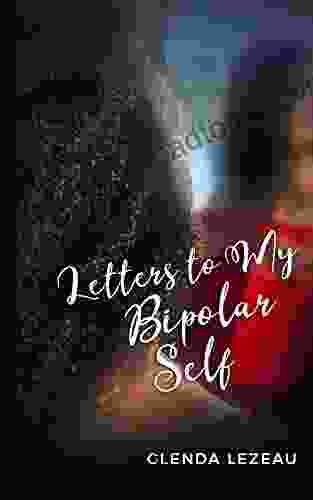
 Chinua Achebe
Chinua AchebeLetters to My Bipolar Self: A Journey of Hope, Healing,...
Bipolar disFree...
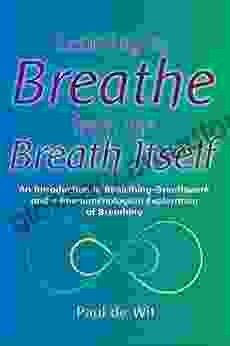
 John Parker
John ParkerLearning to Breathe from the Breath Itself: A...
In the whirlwind of modern life, finding...
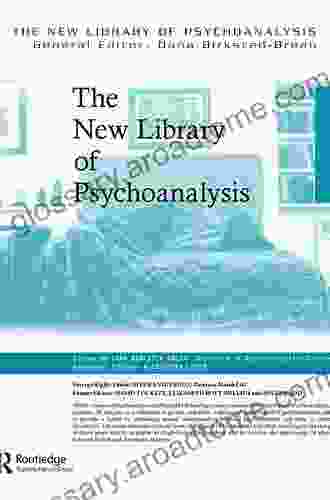
 Beau Carter
Beau CarterExperiences In Psychoanalysis: A Journey into the...
Are you fascinated by the...
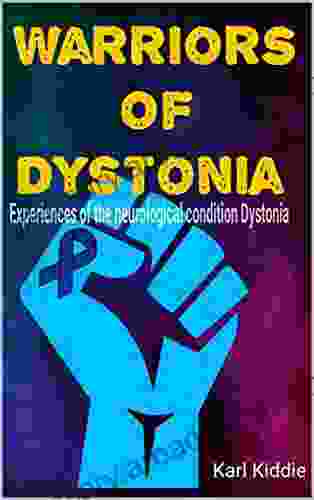
 George Hayes
George HayesExperiences Of The Neurological Condition Dystonia
Navigating the Labyrinth of a Complex...

 Jerome Powell
Jerome PowellOver 50 Keto Meal Prep Recipes: Your Essential Guide to...
Welcome to the world...
4.9 out of 5
| Language | : | English |
| File size | : | 25095 KB |
| Text-to-Speech | : | Enabled |
| Screen Reader | : | Supported |
| Enhanced typesetting | : | Enabled |
| Print length | : | 710 pages |



